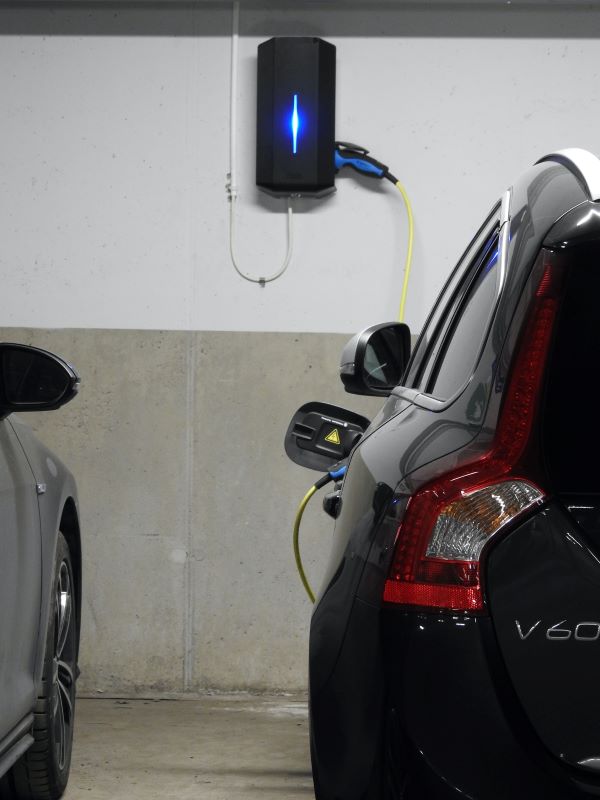 Electronic Vehicle Charging
Electronic Vehicle Charging Govt issues revised guidelines to set up public EV charging stations
New Delhi/IBNS: In an attempt to create a support network for Electronic Vehicles (EVs), the Centre has allowed government entities to provide land to private agencies to set up public charging stations through bidding starting with a floor price of Rs 1 per unit.
The Union Ministry of Power has issued the revised consolidated Guidelines & Standards for Charging Infrastructure for Electric Vehicles (EV) on January 14, 2022.
"The objective is to enable faster adoption of electric vehicles in India by ensuring safe, reliable, accessible and affordable Charging Infrastructure and eco-system. This would also promote energy security and reduction of emission intensity of the country by promoting of entire EV ecosystem," the government said in a release.
Any individual/entity is free to set up public charging stations without the requirement of a license provided that, such stations meet the technical, safety as well as performance standards and protocols laid down under the guidelines as well as norms/ standards/ specifications laid down by Ministry of Power, Bureau of Energy Efficiency (BEE) and Central Electricity Authority (CEA) from time to time.
Land available with the Government/Public entities shall be provided for installation of Public Charging Stations to a Government/Public entity on a revenue-sharing basis for the installation of Public Charging Station at a fixed rate of Rs 1 / kWh (used for charging) to be paid to the Land-Owning Agency from such PCS business payable on a quarterly basis.
A Model Revenue Sharing agreement has also been included under the guidelines.
Such revenue-sharing agreements may be initially entered by parties for a period of 10 years.
The Revenue Sharing Model may also be adopted by the public Land-owning agency for providing the land to a private entity for installation of Public Charging Stations on a bidding basis with a floor price of Rs 1 / kWh.
The tariff for supply of electricity to Public EV Charging Stations shall be a single part tariff and will not exceed the “Average Cost of Supply” till 31st March, 2025. The same tariff shall be applicable for Battery Charging Station (BCS). The tariff applicable for domestic consumption will be applicable for domestic charging.
As electricity is being provided at concessional rates and also considering the fact that subsidy is being provided by the Central/State Governments in many cases for setting up Public Charging Stations, the State Government will fix the ceiling of Service Charges to be charged by such Charging Stations.
Any Public Charging Station/ Chain of Charging Stations may obtain electricity from any generation company through open access.
Open Access will be provided for this purpose within 15 days of receipt of the application complete in all respect.
They will be required to pay the applicable surcharge – equal to the current level of cross-subsidy (not more than 20 percent, as per the Tariff Policy Guidelines), transmission charges and wheeling charges.
No other surcharge or charges shall be levied except mentioned in this provision.
Public Charging Station will be required to tie up up with at least one online Network Service Providers (NSPs) to enable advance remote/online booking of charging slots by EV owners. Such online information to EV owners should also include information regarding location, types and numbers of chargers installed/available, service charges for EV charging etc.
To alleviate the range anxiety of the potential EV owners, guidelines provides that at least one Charging Station shall be available in a grid of 3 Km X 3 Km.
Further, one Charging Station shall be set up at every 25 Km on both sides of highways/roads.
For long-range EVs and/or heavy-duty EVs like buses/trucks etc., there shall be at least one Fast Charging Station with Charging Infrastructure Specifications every 100 Kms, one on each side of the highways/road located preferably within/alongside the Public Charging Stations.
A phase-wise installation has been envisaged under the guidelines as below:
Phase I (1-3 Years): All Mega Cities with population of 4 million-plus as per census 2011, all existing expressways connected to these Mega-Cities & important Highways connected with each of these Mega Cities may be taken up for coverage. A list of these Mega Cities and existing connected expressways is prepared
Phase II (3-5 Years): Big cities like State Capitals, UT headquarters may also be covered for distributed and demonstrative effect. Further, important Highways connected with each of these Mega Cities may be taken up for coverage.
Bureau of Energy Efficiency (BEE) shall be the Central Nodal Agency for rollout of EV Public Charging Infrastructure All relevant agencies including Central Electricity Authority (CEA) shall provide necessary support to Central Nodal Agency.
Support Our Journalism
We cannot do without you.. your contribution supports unbiased journalism
IBNS is not driven by any ism- not wokeism, not racism, not skewed secularism, not hyper right-wing or left liberal ideals, nor by any hardline religious beliefs or hyper nationalism. We want to serve you good old objective news, as they are. We do not judge or preach. We let people decide for themselves. We only try to present factual and well-sourced news.







